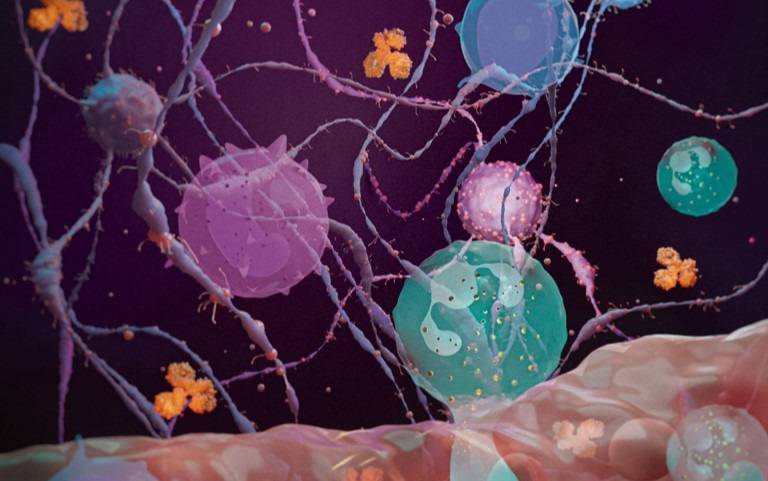Study identifies autoimmunity as a key component in dementia causing pathologies
1 November 2022
A new study involving researchers from the Whitehall II Study suggests that autoimmune dysfunction may play a key role in diseases causing dementia and could be a potential drug target.

In the study, Professors Archana Singh-Manoux, Gill Livingston and Mika Kivimäki, along with researchers from the US and Finland, show that dementia-causing conditions such as Alzheimer´s disease may have an autoimmune component that is modifiable with currently available drugs. The study has been published in Nature Aging.
Immune system and blood–brain barrier dysfunction are implicated in the development of Alzheimer’s and other dementia-causing diseases, but their causal role remains unknown. The authors performed Mendelian randomization for 1,827 immune system- and blood–brain barrier-related biomarkers and identified 127 potential causal risk factors for dementia-causing diseases. The findings suggest that autoimmunity is a modifiable component in dementia-causing diseases. The study also suggests that anti-inflammatory drugs might prevent dementia.
Professor Mika Kivimäki, Director of the Whitehall II study, said:
“Accumulation of amyloid beta and tau are hallmarks of Alzheimer’s disease but drugs preventing this accumulation have not reversed dementia. Our findings highlight an additional feature of dementia pathogenesis, the death of brain neurons caused by autoimmune response against body’s own healthy cells and tissues. Our observational data suggest that targeting the brain-damaging autoimmunity by anti-inflammatory drugs might provide an avenue to prevent dementia. Obviously clinical trials are still needed to determine their effectiveness in practice.”
Links
- Immune system-wide Mendelian randomization and triangulation analyses support autoimmunity as a modifiable component in dementia-causing disease study
- Whitehall II
- Professor Mika Kivimaki's academic profile
Image
- Image credit: Nature Aging. Dr. Behnoush Hajian, Broad Institute of MIT and Harvard. Cover design: Lauren Heslop
 Close
Close

